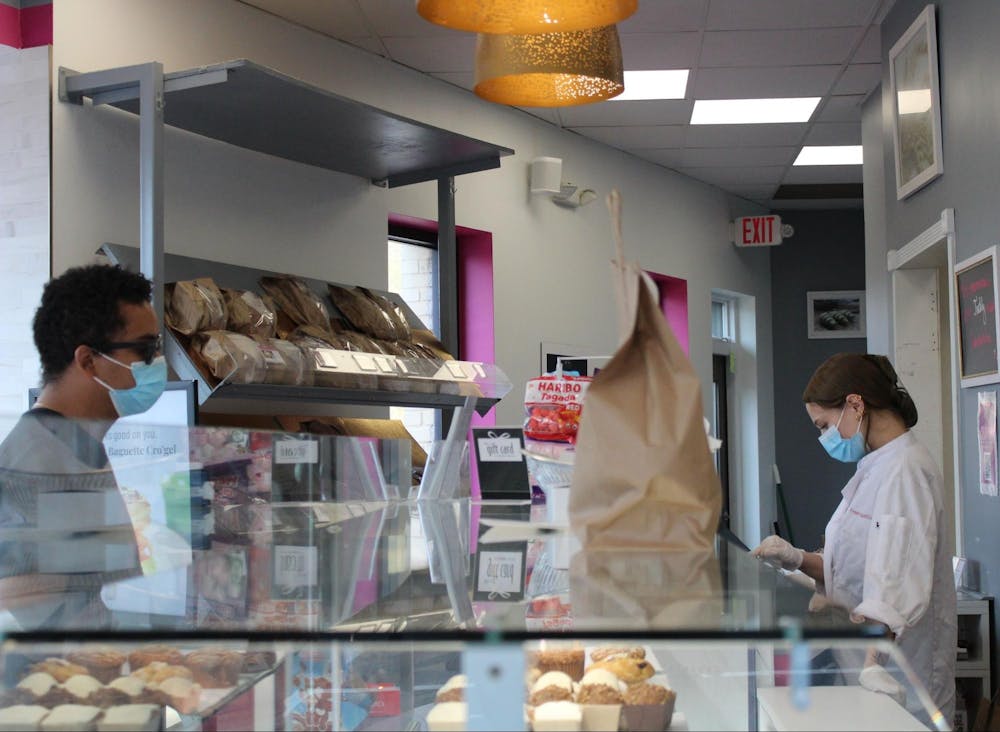Too Good To Go, a free app fighting food waste, expanded March 4 to D.C. So far, over 50 establishments in The District have joined Too Good To Go’s initiative, making residents in the DMV area the latest of Too Good To Go’s 36 million global users, according to their website.
The app gives D.C. businesses the chance to cut down on food waste, sell less popular products and reach a diverse market.
Fresh Baguette, a bakery with locations in Georgetown, Bethesda and Rockville, was one of the first establishments to join the program.
“We should never waste food,” said Florent de Felcourt, owner of Fresh Baguette. “This is a way to make people happy; this is a way to use new technologies.”
P.J. Freitag, the general manager at Fat Pete’s BBQ in Cleveland Park, shared similar motivations with de Felcourt for joining the program. Having grown up living a farm-to-table lifestyle, he understood the value of food from a very young age.
“I’d rather not that cow or chicken or pig die in vain — that somebody eats it instead of just throwing it out,” Freitag said.
Too Good To Go’s mission is to inspire people to take action against food waste within their own communities, according to the app’s website. It allows customers to buy “Surprise Bags,” bags that are filled with surplus food from local grocery stores, restaurants, bakeries and cafés at a fraction of their retail value. The goal is to give customers a way to live sustainability, and store owners an opportunity to profit from food that would have otherwise been wasted, according to Too Good To Go’s press release.
Freitag remains hopeful that Too Good To Go will be a success once Fat Pete’s begins coordinating “Surprise Bags.” He anticipates this will begin at the end of April due to the minimal leftover food currently available.
Though he and the restaurant’s head consultant work weekly to track how much food they are wasting, Freitag explained that it is more difficult during the summer — when they also send out food trucks — to predict how much they need on a daily basis.
For now, Freitag and other staff members will continue handing out leftovers or unclaimed delivery orders to the homeless in the Cleveland Park area in order to do what they can to cut down on waste. He hopes that some community members will also see Too Good To Go as an opportunity to buy inexpensive meals for some of the homeless in the neighborhood.
The prospect of new customers — especially those who hope to make a difference in their communities — has been particularly appealing for these D.C. businesses.
“I’m convinced that the customers are not those who would have spent a lot of money in the store during the day because they are students or they, for many reasons, do not have the same kind of purchase available,” said de Felcourt. “For us, it’s new customers. We make them happy, we do something useful for them, we avoid wasting.”
Too Good To Go was originally created and launched in Denmark in 2015 and quickly gained popularity in Europe. Expanding rapidly in the United States in 2020, Washington, D.C. is the latest big city to join the program, which has already been successful in New York City, Jersey City, Boston and Philadelphia.
“It helps out in the entire way,” said Freitag. “It saves the environment, people get food, it’s not just going to waste.”





